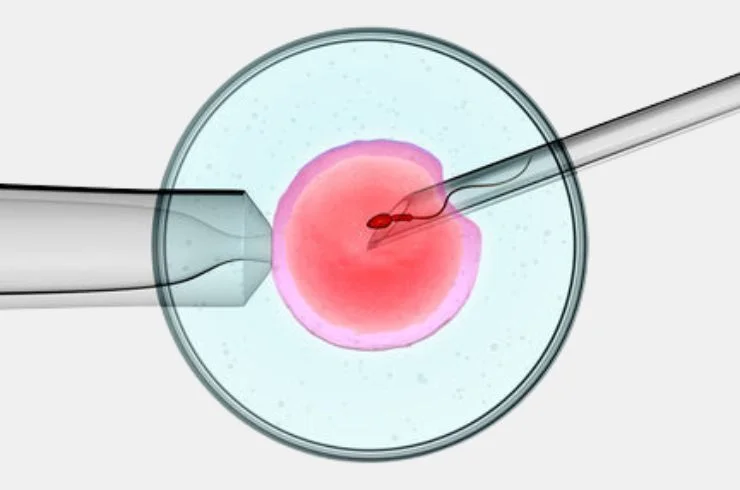ICSI

ICSI (Intracytoplasmic Sperm Injection) is a specialized form of IVF (In Vitro Fertilization) that significantly enhances the chances of fertilization by directly injecting a single sperm into a single egg. This precise method bypasses the natural barrier of the egg’s outer layer, ensuring that fertilization occurs even in cases where sperm may struggle to penetrate the egg on its own.
How ICSI Differs from Traditional IVF
In traditional IVF, thousands of sperm are placed around an egg in a petri dish, and fertilization is left to chance. This mimics the natural process of sperm competing to penetrate the egg. While effective in many cases, traditional IVF can sometimes result in no fertilization, especially in situations where the sperm quality is low or there are issues with sperm mobility or morphology.
With ICSI, however, fertilization is facilitated directly:
- Sperm Selection: A single healthy sperm is selected under a microscope.
- Injection: This sperm is then injected directly into the cytoplasm of the egg using a very fine needle.
- Fertilization: This method promotes higher fertilization rates, as the process no longer depends on the sperm’s ability to reach and penetrate the egg on its own.
Why ICSI is Preferred Over Traditional IVF
Male Factor Infertility:
- ICSI is especially beneficial for couples experiencing male infertility, such as low sperm count, poor sperm motility, or abnormal sperm morphology. Even when only a few viable sperm are available, ICSI can still achieve fertilization.
Unexplained Infertility:
- For couples where the cause of infertility remains unknown (unexplained infertility), ICSI ensures that fertilization takes place without leaving it to chance, which can improve the likelihood of conception.
Failed Fertilization in Previous IVF Cycles:
- If a couple has undergone traditional IVF before and experienced failed fertilization, ICSI is often recommended to overcome any barriers to fertilization that may have gone undetected.
Fertilization Reliability:
- ICSI offers more reliability in achieving fertilization compared to traditional IVF, which is why it has become the standard in many fertility clinics.
The ICSI Process
Egg Retrieval:
- Just like in traditional IVF, the first step involves retrieving mature eggs from the woman’s ovaries after a cycle of ovarian stimulation.
Sperm Collection:
- Sperm is either collected from a fresh sample or thawed from a previously frozen sample. In certain cases, sperm may be extracted directly from the testicles through a procedure called TESA (Testicular Sperm Aspiration) if needed.
Sperm Injection:
- A skilled embryologist selects a healthy sperm and injects it directly into the egg’s cytoplasm using a fine microneedle.
Fertilization:
- The fertilized egg, now called a zygote, is monitored in the lab for signs of cell division and embryo development.
Embryo Transfer:
- The resulting embryos can either be transferred into the woman’s uterus a few days later or frozen for future use.
